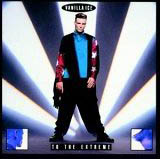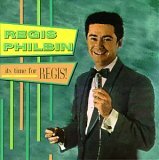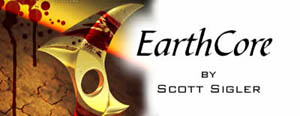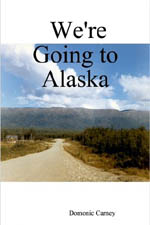An excellent essay in last month’s Common-Place, “Blogging in the Early Republic” by W. Caleb McDaniel, examines the historical antecedents of the present blogging craze, looking not to the usual suspects – world shakers like Martin Luther and Thomas Paine – but to an obscure 19th century abolitionist named Henry Clarke Wright. Wright was a prolific writer and tireless lecturer on a variety of liberal causes. He was also “an inveterate journal keeper,” filling over a hundred diaries through the course of his life. And on top of that, he was an avid reader, the diaries serving as a record of his voluminous consumption. McDaniel writes:

While private, the journals were also public. Wright mailed pages and even whole volumes to his friends or read them excerpts from the diaries, and many pages were later published in his numerous books. Thus, as his biographer Lewis Perry notes, in the case of Wright, “distinctions between private and public, between diaries and published writings, meant little.”
Wright’s journaling habit is interesting not for any noticeable impact it had on the politics or public discourse of his day; nor (at least for our purposes) for anything particularly memorable he may have written. Nor is it interesting for the fact that he was an active journal-keeper, since the practice was widespread in his time. Wright’s case is worth revisiting because it is typical — typical not just of his time, but of ours. It tells a strikingly familiar story: the story of a reader awash in a flood of information.
Wright, in his lifetime, experienced an incredible proliferation of printed materials, especially newspapers. The print revolution begun in Germany 400 years before had suddenly gone into overdrive.
The growth of the empire of newspapers had two related effects on the practices of American readers. First, the new surplus of print meant that there was more to read. Whereas readers in the colonial period had been intensive readers of selected texts like the Bible and devotional literature, by 1850 they were extensive readers, who could browse and choose from a staggering array of reading choices. Second, the shift from deference to democratization encouraged individual readers to indulge their own preferences for particular kinds of reading, preferences that were exploited and targeted by antebellum publishers. In short, readers had more printed materials to choose from, more freedom to choose, and more printed materials that were tailored to their choices.
Wright’s journaling was his way of metabolizing this deluge of print, and his story draws attention to a key aspect of blogging that is often overshadowed by the more popular narrative – that of the latter-day pamphleteer, the lone political blogger chipping away at mainstream media hegemony. The fact is that most blogs are not political. The star pundits that have risen to prominence in recent years are by no means representative of the world’s roughly 15 million bloggers. Yet there is one crucial characteristic that is shared by all of them – by the knitting bloggers, the dog bloggers, the macrobiotic cooking bloggers, along with the Instapundits and Daily Koses: they are all records of reading.
The blog provides a means of processing and selecting from an overwhelming abundance of written matter, and of publishing that record, with commentary, for anyone who cares to read it. In some cases, these “readings” become influential in themselves, and multiple readers engage in conversations across blogs. But treating blogging first as a reading practice, and second as its own genre of writing, political or otherwise, is useful in forming a more complete picture of this new/old phenomenon. To be sure, today’s abundance makes the surge in 18th century printing look like a light sprinkle. But the fundamental problem for readers is no different. Fortunately, blogs provide us with that much more power to record and annotate our readings in a way that can be shared with others. We return to Bob’s observation that something profound is happening to our media consumption patterns.
As McDaniel puts it:
…readers, in a culture of abundant reading material, regularly seek out other readers, either by becoming writers themselves or by sharing their records of reading with others. That process, of course, requires cultural conditions that value democratic rather than deferential ideals of authority. But to explain how new habits of reading and writing develop, those cultural conditions matter as much–perhaps more–than economic or technological innovations. As Tocqueville knew, the explosion of newspapers in America was not just a result of their cheapness or their means of production, any more than the explosion of blogging is just a result of the fact that free and user-friendly software like Blogger is available. Perhaps, instead, blogging is the literate person’s new outlet for an old need. In Wright’s words, it is the need “to see more of what is going on around me.” And in print cultures where there is more to see, it takes reading, writing, and association in order to see more.
(image: “old men reading” by nobody, via Flickr)





 in june i decided to explore the podcast phenomenon. i downloaded a number of different programs on to my ipod shuffle. the first batch included some favorite radio programs that i rarely listen to now that i hardly ever drive anywhere, a bunch of different audio blogs, some serious, some insane or inane . . . and the most interesting –
in june i decided to explore the podcast phenomenon. i downloaded a number of different programs on to my ipod shuffle. the first batch included some favorite radio programs that i rarely listen to now that i hardly ever drive anywhere, a bunch of different audio blogs, some serious, some insane or inane . . . and the most interesting –  the plot is original and ingeniously woven and Sigler is one hell of a story teller. his palpable enthusiasm for his story, the Earthcore project and the new world of podcasting is infectious. just as in the best blogs, Earthcore seems to get an extra jolt from sigler’s willingness to put himself and his ideas on the line. his personality comes shining through; getting to know him and liking his attitude becomes an important part of the experience. with over 10,000 listeners by now, you would think that more than one major publisher would have come begging to buy the rights to a book with a significant proven audience. however, as if more proof of the moribund nature of big publishing were needed, to date not one publisher has approached Sigler. he’s on the verge of signing a deal with a small Canadian publisher,
the plot is original and ingeniously woven and Sigler is one hell of a story teller. his palpable enthusiasm for his story, the Earthcore project and the new world of podcasting is infectious. just as in the best blogs, Earthcore seems to get an extra jolt from sigler’s willingness to put himself and his ideas on the line. his personality comes shining through; getting to know him and liking his attitude becomes an important part of the experience. with over 10,000 listeners by now, you would think that more than one major publisher would have come begging to buy the rights to a book with a significant proven audience. however, as if more proof of the moribund nature of big publishing were needed, to date not one publisher has approached Sigler. he’s on the verge of signing a deal with a small Canadian publisher, 